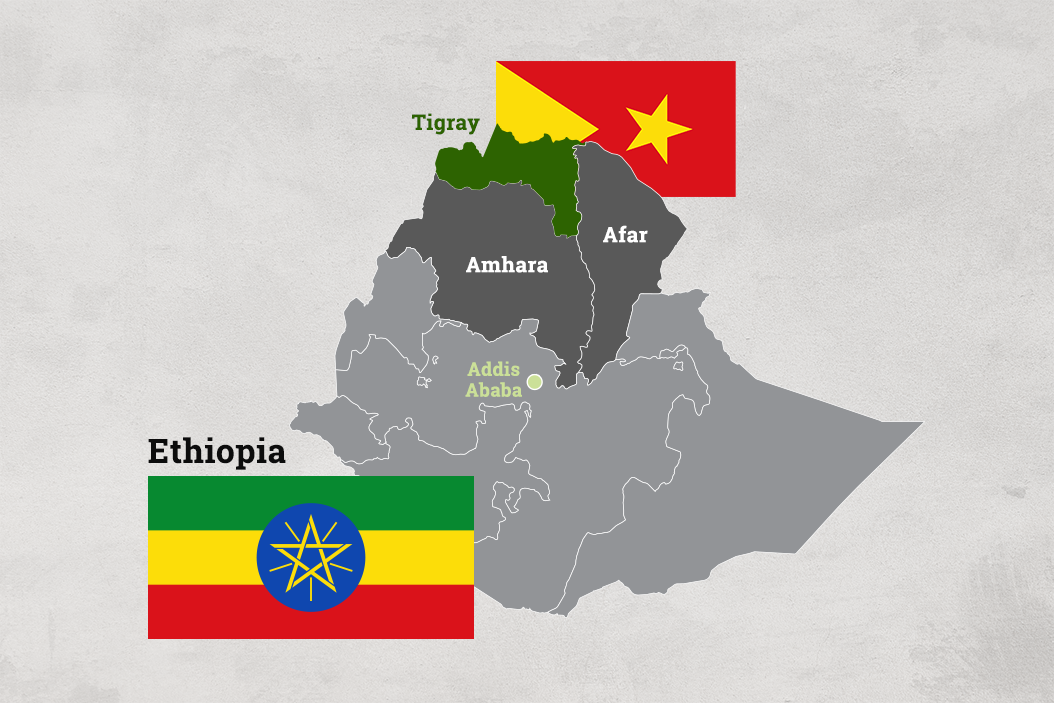August 12, 2021
Samantha Power is still best known to many as the author of "A Problem from Hell: America and the Age of Genocide," her much-lauded 2002 book on the history of global inaction in the face of genocide and other crimes against humanity. In January, when US President Joe Biden chose her to lead the US Agency for International Development, he called her "a world-renowned voice of conscience and moral clarity."
This week, Power arrived in Ethiopia to try to help avert that country's slide into full-scale civil war. She knows as well as anyone that it won't be easy.
How did we get here? In 2018, Abiy Ahmed became Ethiopia's prime minister, ending 30 years of rule by ethnic Tigrayans. After years of fractious ethnic politics, his pledge to bring Ethiopians of all ethnicities together under a modern national identity and his success in ending a longstanding war with Eritrea won him the 2019 Nobel Prize.
But violence in the Tigray region, home to about six million of Ethiopia's 115 million people, led to tensions, and then recriminations, between Abiy and the Tigray People's Liberation Front, which won an election to lead Tigray's regional government in September 2020 that the central government refused to recognize.
On November 4, 2020, Abiy ordered a military attack on TPLF forces, which he blamed for attacks on government troops. The prime minister at first described this operation as a simple police action, but the fighting has since killed thousands of people and driven more than two million from their homes over the past nine months. There are credible claims of atrocities against both sides. A humanitarian crisis exacerbated by famine and COVID is getting worse.
With violence spilling over the borders of Tigray into the neighboring Afar and Amhara regions last week, Abiy sounded an alarm. On Tuesday, he called for "all capable Ethiopians" to "show their patriotism" by taking up arms. He also asked them to "track down and expose spies and agents of the terrorist TPLF." As the conflict expands into other regions, there is credible fear that various militia groups representing other ethnic groups will be drawn into the fighting, creating momentum toward full-scale civil war that leaves Ethiopia permanently ungovernable.
Samantha Power and other outsiders want to halt this conflict to prevent the large-scale indiscriminate slaughter of innocent people. But for the US and other foreign governments, the stakes extend well beyond the humanitarian. Ethiopia is home to five times as many people as lived in Syria before that country's civil war began 10 years ago. Large numbers of Tigrayan refugees are already on the move. Terrorism in East Africa is a problem that already has the attention of many governments, and extreme instability in the region's most populous country (by far) can make matters much worse.
What are the options? A US military intervention is a non-starter. The Biden administration, occupied with taking troops out of Afghanistan, isn't about to move US troops into Ethiopia.
A cutoff of security assistance funding and sanctions imposed on senior political and military figures responsible for the fighting haven't accomplished anything. In a conflict where both sides consider the stakes to be life and death, they aren't likely to change anybody's behavior.
Samantha Power is ultimately in charge of more than $1 billion in annual US aid to Ethiopia. Withholding that much money would surely grab the Ethiopian government's attention. But is the solution to the Ethiopian problem from hell really to withhold humanitarian help just at the moment when millions of Ethiopians need it most?
The bottom line: US, UN, and EU officials will join other African governments to look for opportunities to use both carrots and sticks to bring Abiy's government and Tigrayan rebels to the negotiating table. China has called on Western governments to avoid meddling in Ethiopia, but its government has billions of dollars in investment to protect there. That could make Beijing a crucial partner with other governments in helping to negotiate peace.
Preventing the nightmare outcome in Ethiopia isn't simply a test of will. It will depend on creativity, stamina, and imagination — and the active intervention of foreign diplomats.
From Your Site Articles
- What We're Watching: Russia backs Belarus, Biden warns Ethiopian ... ›
- Ethiopia's PM wanted legitimacy – did he get it? - GZERO Media ›
- Is Ethiopia's Tigray region really on the road to peace? - GZERO ... ›
- Ethiopia at war with itself - GZERO Media ›
- Can Ethiopia hold elections in the middle of a civil war? - GZERO ... ›
- What We’re Watching: NATO tries to deter Russia, Ethiopia’s war widens, India targets a laughable enemy - GZERO Media ›
More For You
Bad Bunny during the Super Bowl LX halftime show press conference at Moscone Center.
Kirby Lee-Imagn Images
100 million: The number of people expected to watch the Super Bowl halftime performance with Bad Bunny, the Puerto Rican superstar and newly minted Album of the Year winner at the Grammys.
Most Popular
Think you know what's going on around the world? Here's your chance to prove it.
- YouTube
An imminent US airstrike on iran is not only possible, it's probable.
Americans are moving less — and renting more. Cooling migration and rising vacancy rates, especially across the Sunbelt, have flattened rent growth and given renters new leverage. For many lower-income households, that relief is beginning to show up in discretionary spending. Explore what's changing in US housing by subscribing to Bank of America Institute.
© 2025 GZERO Media. All Rights Reserved | A Eurasia Group media company.
